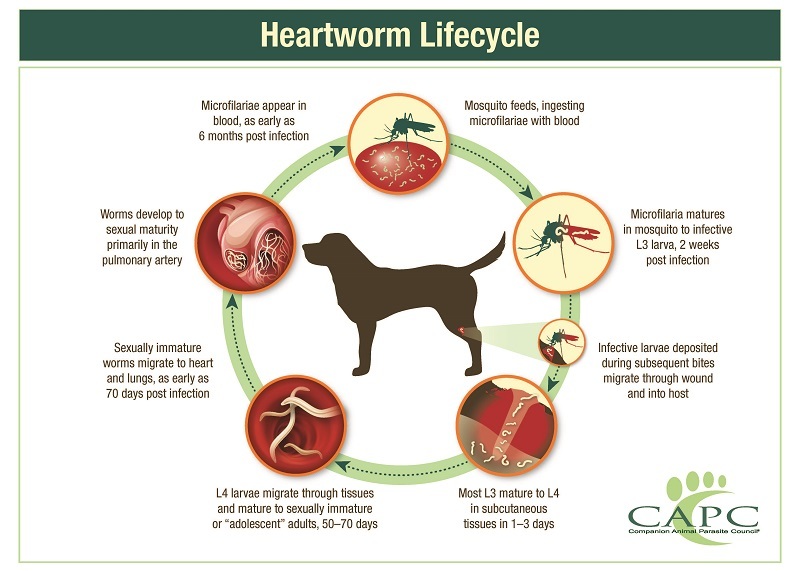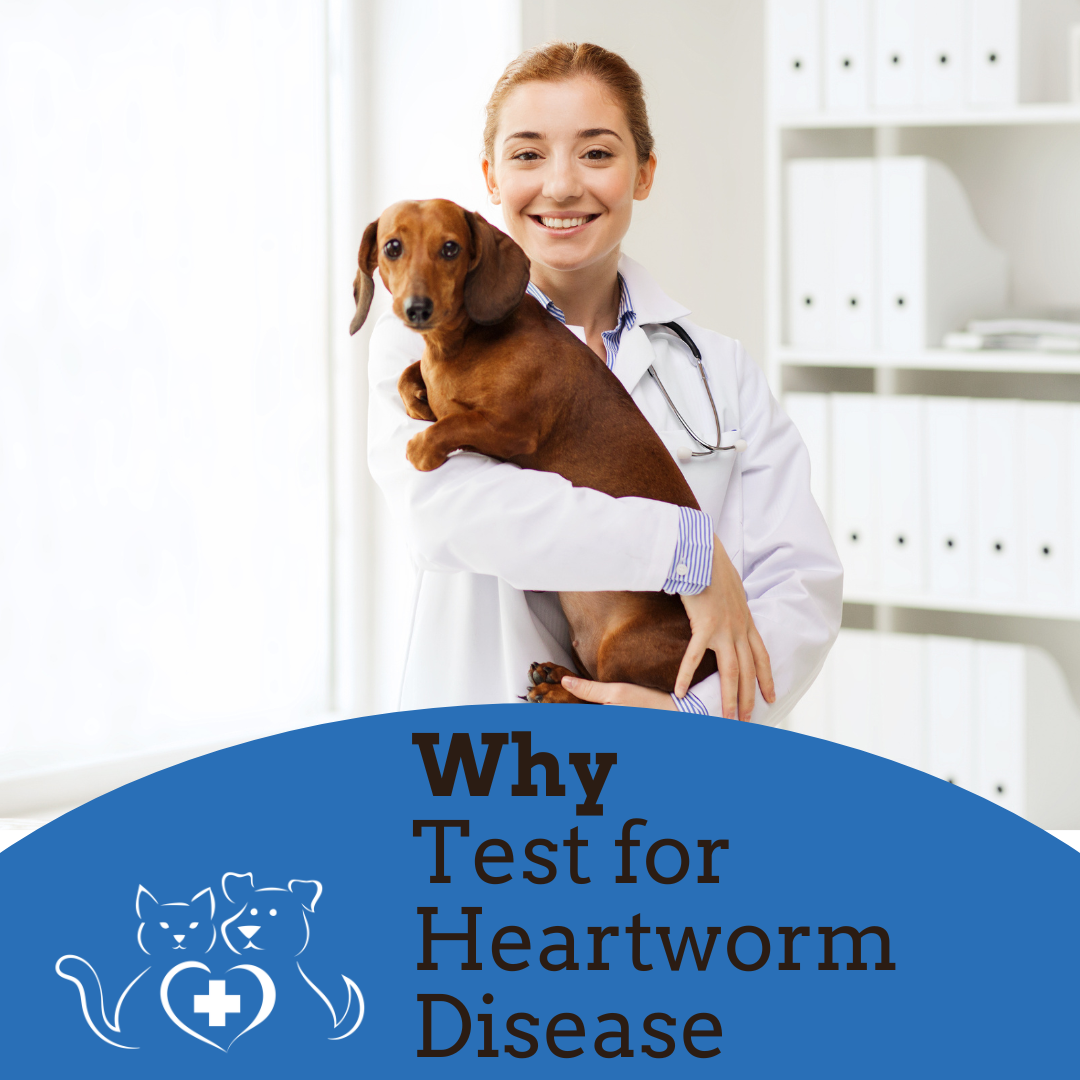Heartworm Testing Newly Rescued Dogs and Dogs With Long Gaps in Preventions
Maybe you have just adopted or taken in a dog that you have rescued. Maybe you have recently moved to North Carolina from a cooler climate where you may not be giving heartworm medication all year. Maybe you have been living here for quite some time, but you forget to give your dog heartworm prevention on an ongoing basis.
This information is for you and your dogs!
In case you aren’t familiar, heartworm disease is a potentially deadly disease that dogs can only get from mosquitos but we can prevent the disease.
Let’s look more closely at the life cycle of heartworm and the role of mosquitos. It is far more complex than anyone can imagine.
Let’s start with a dog already infected with heartworms. A mosquito bites the infected dog, and when it does, the mosquito ingests blood containing “microfilaria”, tiny larvae (L1 stage) that are produced by female heartworms.
Over the next 10-14 days, the microfilaria matures inside the mosquito into L2 larvae, then L3 larvae which are the infective sources of heartworm development. As a mosquito continues to bite and feed on pets (or other animals susceptible to heartworm disease), it will deposit these infective L3 larvae into other dogs.
This L3 phase is the most critical phase of development into adult heartworms. Should you lapse in giving heartworm medication by even a few days, the infective L3 larva can continue to develop. Once the L3 larvae develop, there is no heartworm prevention that will stop the further development into adult heartworms.
It helps at this point to understand that heartworm prevention works by killing the larvae that have infected your dog during the previous 30 days! It is NOT protecting against any future bites or mosquito exposure for the next 30 days. Prevention only kills the L1 larva (microfilaria), L2 larva, and L3 (infective) larva.
Most of the L3 larva will mature into an L4 larva under the skin in the next 3 to 4 days. These L4 larvae migrate through body tissues and mature into immature (adolescent) adult worms over the next 45 to 70 days. These adolescent worms migrate to the heart and lungs as early as 70 days (10 weeks) following the initial mosquito bite. These adolescent worms will then develop into sexually mature worms at around 120 days (4+ months) primarily in the pulmonary artery, the large blood vessel that pumps blood from the heart into the lungs.
The female and male heartworms then mate, resulting in microfilaria, the tiny L1 larva. These microfilariae will generally appear in the blood between 7 to 9 months following the initial mosquito bite. And at this point, a biting mosquito can pick up the microfilaria from biting your dog. It is only at this point that heartworm tests can reveal if a dog has heartworm disease ~ several months after the initial bite from a mosquito!
To say that the insect and animal kingdoms are unique and puzzling and fascinating is an understatement.
If we test your dog for heartworms and they test ‘negative’ (no evidence of heartworms at that time), we strongly advise re-testing your dog in 6 months following the initial test.

Because of the very unique and complex life cycle of heartworms you can now understand why we need to re-test: it is possible that your dog already has the disease, but our test is unable to confirm it until at least 7 months after your dog was first infected.
I’m sure that now you’ll recognize how crucially important it is to keep giving heartworm prevention every 30 days as directed.
Any dog older than 7 months of age that has not been tested for heartworm should be tested at the earliest opportunity. If your dog has already been tested for heartworms by another veterinary facility prior to visiting one of our clinics, again it is very important to have your dog re-tested 6 months following the initial test. Provide us with the date the test was done, and we will create a reminder for you to be received 6 months after that test, at which time you should return to one of our clinics in order to re-test your dog.
Here are the important takeaways from the information here:
- Any dog older than 7 months of age that is not currently on heartworm prevention … or any dog that has not been given prevention in more than 6 months … we will need to test for Heartworm Disease with a blood sample before we can provide heartworm prevention
- We strongly advise re-testing your dog in another 6 months (for the reasons described below). You will receive a reminder from us in 6 months to return for a follow-up test.
- Make sure to give your dog its chewable tablet or topical liquid heartworm prevention EVERY 30 DAYS all year-round … or consider choosing an injectable heartworm prevention.
For more information on heartworms check out the Companion Animal Parasite Council Site and the American Heartworm Society.

